Pope Quotes
Quotes tagged as "pope"
Showing 1-30 of 71

“[Said during a debate when his opponent asserted that atheism and belief in evolution lead to Nazism:]
Atheism by itself is, of course, not a moral position or a political one of any kind; it simply is the refusal to believe in a supernatural dimension. For you to say of Nazism that it was the implementation of the work of Charles Darwin is a filthy slander, undeserving of you and an insult to this audience. Darwin’s thought was not taught in Germany; Darwinism was so derided in Germany along with every other form of unbelief that all the great modern atheists, Darwin, Einstein and Freud were alike despised by the National Socialist regime.
Now, just to take the most notorious of the 20th century totalitarianisms – the most finished example, the most perfected one, the most ruthless and refined one: that of National Socialism, the one that fortunately allowed the escape of all these great atheists, thinkers and many others, to the United States, a country of separation of church and state, that gave them welcome – if it’s an atheistic regime, then how come that in the first chapter of Mein Kampf, that Hitler says that he’s doing God’s work and executing God’s will in destroying the Jewish people? How come the fuhrer oath that every officer of the Party and the Army had to take, making Hitler into a minor god, begins, “I swear in the name of almighty God, my loyalty to the Fuhrer?” How come that on the belt buckle of every Nazi soldier it says Gott mit uns, God on our side? How come that the first treaty made by the Nationalist Socialist dictatorship, the very first is with the Vatican? It’s exchanging political control of Germany for Catholic control of German education. How come that the church has celebrated the birthday of the Fuhrer every year, on that day until democracy put an end to this filthy, quasi-religious, superstitious, barbarous, reactionary system?
Again, this is not a difference of emphasis between us. To suggest that there’s something fascistic about me and about my beliefs is something I won't hear said and you shouldn't believe.”
―
Atheism by itself is, of course, not a moral position or a political one of any kind; it simply is the refusal to believe in a supernatural dimension. For you to say of Nazism that it was the implementation of the work of Charles Darwin is a filthy slander, undeserving of you and an insult to this audience. Darwin’s thought was not taught in Germany; Darwinism was so derided in Germany along with every other form of unbelief that all the great modern atheists, Darwin, Einstein and Freud were alike despised by the National Socialist regime.
Now, just to take the most notorious of the 20th century totalitarianisms – the most finished example, the most perfected one, the most ruthless and refined one: that of National Socialism, the one that fortunately allowed the escape of all these great atheists, thinkers and many others, to the United States, a country of separation of church and state, that gave them welcome – if it’s an atheistic regime, then how come that in the first chapter of Mein Kampf, that Hitler says that he’s doing God’s work and executing God’s will in destroying the Jewish people? How come the fuhrer oath that every officer of the Party and the Army had to take, making Hitler into a minor god, begins, “I swear in the name of almighty God, my loyalty to the Fuhrer?” How come that on the belt buckle of every Nazi soldier it says Gott mit uns, God on our side? How come that the first treaty made by the Nationalist Socialist dictatorship, the very first is with the Vatican? It’s exchanging political control of Germany for Catholic control of German education. How come that the church has celebrated the birthday of the Fuhrer every year, on that day until democracy put an end to this filthy, quasi-religious, superstitious, barbarous, reactionary system?
Again, this is not a difference of emphasis between us. To suggest that there’s something fascistic about me and about my beliefs is something I won't hear said and you shouldn't believe.”
―
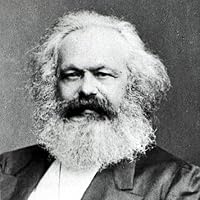
“A specter is haunting Europe—the specter of Communism. All the powers of old Europe have entered into a holy alliance to exorcise this specter; Pope and Czar, Metternich and Guizot, French radicals and German police spies.
Where is the party in opposition that has not been decried as Communistic by its opponents in power? Where the opposition that has not hurled back the branding reproach of Communism, against the more advanced opposition parties, as well as against its reactionary adversaries?
Two things result from this fact.
I. Communism is already acknowledged by all European powers to be in itself a power.
II. It is high time that Communists should openly, in the face of the whole world, publish their views, their aims, their tendencies, and meet this nursery tale of the Specter of Communism with a Manifesto of the party itself.”
― The Communist Manifesto
Where is the party in opposition that has not been decried as Communistic by its opponents in power? Where the opposition that has not hurled back the branding reproach of Communism, against the more advanced opposition parties, as well as against its reactionary adversaries?
Two things result from this fact.
I. Communism is already acknowledged by all European powers to be in itself a power.
II. It is high time that Communists should openly, in the face of the whole world, publish their views, their aims, their tendencies, and meet this nursery tale of the Specter of Communism with a Manifesto of the party itself.”
― The Communist Manifesto

“The seasonal urge is strong in poets. Milton wrote chiefly in winter. Keats looked for spring to wake him up (as it did in the miraculous months of April and May, 1819). Burns chose autumn. Longfellow liked the month of September. Shelley flourished in the hot months. Some poets, like Wordsworth, have gone outdoors to work. Others, like Auden, keep to the curtained room. Schiller needed the smell of rotten apples about him to make a poem. Tennyson and Walter de la Mare had to smoke. Auden drinks lots of tea, Spender coffee; Hart Crane drank alcohol. Pope, Byron, and William Morris were creative late at night. And so it goes.”
― When Found, Make a Verse of
― When Found, Make a Verse of

“When the late Pope John Paul II decided to place the woman so strangely known as “Mother” Teresa on the fast track for beatification, and thus to qualify her for eventual sainthood, the Vatican felt obliged to solicit my testimony and I thus spent several hours in a closed hearing room with a priest, a deacon, and a monsignor, no doubt making their day as I told off, as from a rosary, the frightful faults and crimes of the departed fanatic. In the course of this, I discovered that the pope during his tenure had surreptitiously abolished the famous office of “Devil’s Advocate,” in order to fast‐track still more of his many candidates for canonization. I can thus claim to be the only living person to have represented the Devil pro bono.”
― Hitch 22: A Memoir
― Hitch 22: A Memoir
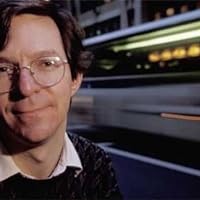
“Each religion makes scores of purportedly factual assertions about everything from the creation of the universe to the afterlife. But on what grounds can believers presume to know that these assertions are true? The reasons they give are various, but the ultimate justification for most religious people’s beliefs is a simple one: we believe what we believe because our holy scriptures say so. But how, then, do we know that our holy scriptures are factually accurate? Because the scriptures themselves say so. Theologians specialize in weaving elaborate webs of verbiage to avoid saying anything quite so bluntly, but this gem of circular reasoning really is the epistemological bottom line on which all 'faith' is grounded. In the words of Pope John Paul II: 'By the authority of his absolute transcendence, God who makes himself known is also the source of the credibility of what he reveals.' It goes without saying that this begs the question of whether the texts at issue really were authored or inspired by God, and on what grounds one knows this. 'Faith' is not in fact a rejection of reason, but simply a lazy acceptance of bad reasons. 'Faith' is the pseudo-justification that some people trot out when they want to make claims without the necessary evidence.
But of course we never apply these lax standards of evidence to the claims made in the other fellow’s holy scriptures: when it comes to religions other than one’s own, religious people are as rational as everyone else. Only our own religion, whatever it may be, seems to merit some special dispensation from the general standards of evidence.
And here, it seems to me, is the crux of the conflict between religion and science. Not the religious rejection of specific scientific theories (be it heliocentrism in the 17th century or evolutionary biology today); over time most religions do find some way to make peace with well-established science. Rather, the scientific worldview and the religious worldview come into conflict over a far more fundamental question: namely, what constitutes evidence.
Science relies on publicly reproducible sense experience (that is, experiments and observations) combined with rational reflection on those empirical observations. Religious people acknowledge the validity of that method, but then claim to be in the possession of additional methods for obtaining reliable knowledge of factual matters — methods that go beyond the mere assessment of empirical evidence — such as intuition, revelation, or the reliance on sacred texts. But the trouble is this: What good reason do we have to believe that such methods work, in the sense of steering us systematically (even if not invariably) towards true beliefs rather than towards false ones? At least in the domains where we have been able to test these methods — astronomy, geology and history, for instance — they have not proven terribly reliable. Why should we expect them to work any better when we apply them to problems that are even more difficult, such as the fundamental nature of the universe?
Last but not least, these non-empirical methods suffer from an insuperable logical problem: What should we do when different people’s intuitions or revelations conflict? How can we know which of the many purportedly sacred texts — whose assertions frequently contradict one another — are in fact sacred?”
―
But of course we never apply these lax standards of evidence to the claims made in the other fellow’s holy scriptures: when it comes to religions other than one’s own, religious people are as rational as everyone else. Only our own religion, whatever it may be, seems to merit some special dispensation from the general standards of evidence.
And here, it seems to me, is the crux of the conflict between religion and science. Not the religious rejection of specific scientific theories (be it heliocentrism in the 17th century or evolutionary biology today); over time most religions do find some way to make peace with well-established science. Rather, the scientific worldview and the religious worldview come into conflict over a far more fundamental question: namely, what constitutes evidence.
Science relies on publicly reproducible sense experience (that is, experiments and observations) combined with rational reflection on those empirical observations. Religious people acknowledge the validity of that method, but then claim to be in the possession of additional methods for obtaining reliable knowledge of factual matters — methods that go beyond the mere assessment of empirical evidence — such as intuition, revelation, or the reliance on sacred texts. But the trouble is this: What good reason do we have to believe that such methods work, in the sense of steering us systematically (even if not invariably) towards true beliefs rather than towards false ones? At least in the domains where we have been able to test these methods — astronomy, geology and history, for instance — they have not proven terribly reliable. Why should we expect them to work any better when we apply them to problems that are even more difficult, such as the fundamental nature of the universe?
Last but not least, these non-empirical methods suffer from an insuperable logical problem: What should we do when different people’s intuitions or revelations conflict? How can we know which of the many purportedly sacred texts — whose assertions frequently contradict one another — are in fact sacred?”
―

“The State which would provide everything, absorbing everything into itself, would ultimately become a mere bureaucracy incapable of guaranteeing the very thing which the suffering person—every person—needs: namely, loving personal concern. We do not need a State which regulates and controls everything, but a State which, in accordance with the principle of subsidiarity, generously acknowledges and supports initiatives arising from the different social forces and combines spontaneity with closeness to those in need. The Church is one of those living forces.”
― God Is Love: Encyclical Letter of Pope Benedict XVI
― God Is Love: Encyclical Letter of Pope Benedict XVI
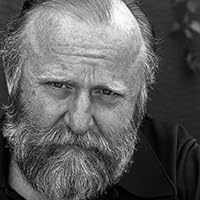
“In 1054, the patriarch of Constantinople and the pope excommunicated each other.
That was the end of holiness for both churches.”
― The White Plague
That was the end of holiness for both churches.”
― The White Plague

“The Pope would have an easier job than the President of the United States in adopting a change of course. He has no Congress alongside him as a legislative body nor a Supreme Court as a judiciary. He is absolute head of government, legislator and supreme judge in the church. If he wanted to, he could authorize contraception over night, permit the marriage of priests, make possible the ordination of women and allow eucharistic fellowship with this Protestant churches. What would a Pope do who acted in the spirit of Obama?”
―
―

“[Pope] Clement waved his hands in irritation as if to dismiss the very idea. "The world is crumbling into ruin. Armies are marching. Men and women are dying everywhere, in huge numbers. Fields are abandoned and towns deserted. The wrath of the Lord is upon us and He may be intending to destroy the whole of creation. People are without leaders and direction. They want to be given a reason for this, so they can be reassured, so they will return to their prayers and their obiediences. All this is going on, and you are concerned about the safety of two Jews?”
― The Dream of Scipio
― The Dream of Scipio

“Having a false and absurd notion as to what liberty is, either they pervert the very idea of freedom, or they extend it at their pleasure to many things in respect of which man cannot rightly be regarded as free.”
― Libertas: On the Nature of Human Liberty
― Libertas: On the Nature of Human Liberty

“For centuries after Christ, the church and other religions that use cruciform symbols have misrepresented the physical nature of Christ's death with a satanic symbol (cross), and a pagan idol (corpus). This secret has been concealed by the church for centuries after Christ.”
―
―

“Do you wish to speak in Provençal, French, or Latin? They are all I can manage, I'm afraid."
"Any will do," the rabbi replied in Provençal.
"Splendid. Latin it is," said Pope Clement.”
― The Dream of Scipio
"Any will do," the rabbi replied in Provençal.
"Splendid. Latin it is," said Pope Clement.”
― The Dream of Scipio

“Max would conclude, "that's who I want to be. The pope. And I'll do the same thing he does. I'll keep all the goddamn money.”
― Empire Falls
― Empire Falls

“Severed heads?” Linus asked in a strangled voice. Lucy sighed. “Just representations of my enemies. The Pope. Evangelicals who attend megachurches. You know, like normal people have.”
― The House in the Cerulean Sea
― The House in the Cerulean Sea
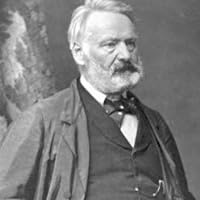
“From Lordship to Eminence is but a step, and between Eminence and Holiness there is only the wisp of smoke from a burnt voting-slip.”
― Les Misérables
― Les Misérables

“If the bulls were allowed to increase their knowledge as the bullfighter does, and if those bulls which are not killed in the allotted fifteen minutes in the ring were not afterwards killed in the corrals but were allowed to be fought again, they would kill all the bullfighters, if the bullfighters fought them according to the rules- Bullfighting is based on the fact that it is the first meeting between the wild animal and a dismounted man. This is the fundamental premise of modern bullfighting—that the bull has never been in the ring before. In the early days of bullfighting bulls were allowed to be fought which had been in the ring before and so many men were killed in the bull ring that on 20th November 1567, Pope Pius the Fifth issued a Papal edict excommunicating all Christian princes who should permit bullfights in their countries and denying Christian burial to any person killed in the bull ring. The Church only agreed to tolerate bullfighting, which continued steadily in Spain in spite of the edict, when it was agreed that the bulls should only appear once in the ring.”
― The Complete Works of Ernest Hemingway
― The Complete Works of Ernest Hemingway
“How ironic that an extraordinarily articulate diplomat with unparalleled cultural sensitivities and a gift for making compelling gestures would end up being the most misunderstood pontiff of modern times.”
―
―

“When I pounded ninety-five theses at the Wittenberg doors in 2005 shortly after Ratzinger was made pope, I did so knowing that this man and his minions were a dangerous team to turn the church over to.”
― The Pope's War: Why Ratzinger's Secret Crusade Has Imperiled the Church and How It Can Be Saved
― The Pope's War: Why Ratzinger's Secret Crusade Has Imperiled the Church and How It Can Be Saved
“Moynihan: What do you say to those who attack you for attacking, for there is no other word for it, the decisions and actions of the pope?
Viganó: It's not an attack on the Church, but a service given to the Church to testify to the truth, because only the truth may protect from the attack of the one who's treacherous, who puts us in danger constantly, the father of lies. This successor of the Apostle of Peter is not exempt from the attack of the devil. On the contrary, he may be the one most disposed to be targeted by the enemy, for to hit the head, the chief, would be an exceptional achievement for the devil because if you hit the pastor, the sheep will be dispersed--Matthew 14.”
― Finding Vigano: The Man Behind the Testimony that Shook the Church and the World
Viganó: It's not an attack on the Church, but a service given to the Church to testify to the truth, because only the truth may protect from the attack of the one who's treacherous, who puts us in danger constantly, the father of lies. This successor of the Apostle of Peter is not exempt from the attack of the devil. On the contrary, he may be the one most disposed to be targeted by the enemy, for to hit the head, the chief, would be an exceptional achievement for the devil because if you hit the pastor, the sheep will be dispersed--Matthew 14.”
― Finding Vigano: The Man Behind the Testimony that Shook the Church and the World
“Scientists such as Bohr, Heisenberg and Born are like prophets and popes. The scientific establishment is like the Catholic Church, always on the lookout for heretics and infidels. To say that scientists are open minded seekers of the truth is a joke. They’re blinkered and fanatical materialists who would never dream of reaching anything other than materialist conclusions, no matter how far-fetched, as we see with the Copenhagen interpretation of quantum mechanics where cats can be claimed to be simultaneously dead and alive, with no one batting an eye.”
― Richard Dawkins: The Pope of Unreason
― Richard Dawkins: The Pope of Unreason

“A fear of state power structured Church thought: the Caesars had killed Peter and Paul, and Jesus. The pope therefore did not have one role, but two. He had to render to God what was God’s, and keep Caesar at bay.”
― Church of Spies: The Pope's Secret War Against Hitler
― Church of Spies: The Pope's Secret War Against Hitler

“Cardinal Wojtyła and one of his auxiliary bishops, Juliusz Groblicki, clandestinely ordained priests for service in Czechoslovakia, in spite of (or perhaps because of) the fact that the Holy See had forbidden underground bishops in that country to perform such ordinations. The clandestine ordinations in Kraków were always conducted with the explicit permission of the candidate’s superior—his bishop or, in the case of members of religious orders, his provincial. Security systems had to be devised. In the case of the Salesian Fathers, a torn-card system was used. The certificate authorizing the ordination was torn in half. The candidate, who had to be smuggled across the border, brought one half with him to Kraków, while the other half was sent by underground courier to the Salesian superior in Kraków. The two halves were then matched, and the ordination could proceed in the archbishop’s chapel at Franciszkańska, 3.
Cardinal Wojtyła did not inform the Holy See of these ordinations. He did not regard them as acts in defiance of Vatican policy, but as a duty to suffering fellow believers. And he presumably did not wish to raise an issue that could not be resolved without pain on all sides. He may also have believed that the Holy See and the Pope knew that such things were going on in Kraków, trusted his judgment and discretion, and may have welcomed a kind of safety valve in what was becoming an increasingly desperate situation.”
― Witness to Hope: The Biography of Pope John Paul II
Cardinal Wojtyła did not inform the Holy See of these ordinations. He did not regard them as acts in defiance of Vatican policy, but as a duty to suffering fellow believers. And he presumably did not wish to raise an issue that could not be resolved without pain on all sides. He may also have believed that the Holy See and the Pope knew that such things were going on in Kraków, trusted his judgment and discretion, and may have welcomed a kind of safety valve in what was becoming an increasingly desperate situation.”
― Witness to Hope: The Biography of Pope John Paul II
“So many Catholics seem to have the idea, ‘if the Pope said, you have to obey. Period.’ No, if the Pope commands something within his jurisdiction, we have to obey. There is a limit to the Pope’s authority.”
― Crucial Truths to Save Your Soul
― Crucial Truths to Save Your Soul
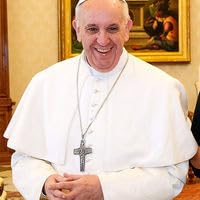
“Dear Alessio, yes, I was an altar boy. And you? What part among the altar boys do you have? It’s easier to do now, you know: You might know that, when I was a kid, Mass was celebrated different than today. Back then, the priest faced the altar, which was next to the wall, and not the people. Then the book with which he said the Mass, the missal, was placed on the right side of the altar. But before reading of the Gospel it always had to be moved to the left side. That was my job: to carry it from right to left. It was exhausting! The book was heavy! I picked it up with all my energy but I wasn’t so strong; I picked it up once and fell down, so the priest had to help me. Some job I did! The Mass wasn’t in Italian then. The priest spoke but I didn’t understand anything. and neither did my friends. So for fun we’d do imitations of the priest, messing up the words a bit to make up weird sayings in Spanish. We had fun, and we really enjoyed serving Mass.”
― Dear Pope Francis: The Pope Answers Letters from Children Around the World
― Dear Pope Francis: The Pope Answers Letters from Children Around the World
“Pope Benedict XVI: Let us pay homage to the evangelical wisdom with which my beloved predecessor was able tomguide the Church during and after the Second Vatican Council. With prophetic intuition he perceoved the hopes and anxieties of the people at that time; he strove to make the most of the positive experiences, seeking to illuminate them with the light of the truth and love of Christ, the one redeemer of humanity.”
― Saint Pope Paul VI: Celebrating the 262nd Pope of the Roman Catholic Church
― Saint Pope Paul VI: Celebrating the 262nd Pope of the Roman Catholic Church
“Pope Benedict XVI on Pope St Paul VI: Let us pay homage to the spirit of evangelical wisdom with which my beloved predecessor was able to guide the Church during and after the Second Vatican Council. With prophetic intuition he perceived the hopes and anxieties or the people at that time; he strove to make the most of the positive experiences, seeking to illuminate them with the light of truth and the love of Christ.”
― Saint Pope Paul VI: Celebrating the 262nd Pope of the Roman Catholic Church
― Saint Pope Paul VI: Celebrating the 262nd Pope of the Roman Catholic Church
“From the time of his passing, there was a movement to promote Paul’s canonization. While criticized in some quarters for his response to the crises after the council and vilified by dissenting theologians for Humanæ Vitæ, Paul was nevertheless loved and respected by those who knew him for his intellect, his gentle courtesy, his humility, and above all, his personal holiness.”
― Saint Pope Paul VI: Celebrating the 262nd Pope of the Roman Catholic Church
― Saint Pope Paul VI: Celebrating the 262nd Pope of the Roman Catholic Church

“There's only one heaven.
And it is open to all -
because our religion stands
for boundless humanity.”
―
And it is open to all -
because our religion stands
for boundless humanity.”
―

“Then again, could you imagine me walking on to the balcony in St Peter’s Square in Rome and delivering the Urbi et Orbi. ‘OK, I’m finished now. Get to foking work!’ Pope Guenther the first would be Pope Guenther the last!”
― Surviving to Drive
― Surviving to Drive

“I wasn’t going to push until he choked to death. I didn’t know much about women, but killing their best friend didn’t seem like a good courting move.”
― Angry God
― Angry God
All Quotes
|
My Quotes
|
Add A Quote
Browse By Tag
- Love Quotes 97k
- Life Quotes 75.5k
- Inspirational Quotes 72.5k
- Humor Quotes 43.5k
- Philosophy Quotes 29.5k
- Inspirational Quotes Quotes 27k
- God Quotes 26k
- Truth Quotes 23.5k
- Wisdom Quotes 23.5k
- Romance Quotes 23k
- Poetry Quotes 22k
- Death Quotes 20k
- Happiness Quotes 18.5k
- Life Lessons Quotes 18.5k
- Hope Quotes 18k
- Faith Quotes 18k
- Quotes Quotes 16.5k
- Inspiration Quotes 16.5k
- Spirituality Quotes 15k
- Religion Quotes 15k
- Motivational Quotes 15k
- Writing Quotes 14.5k
- Relationships Quotes 14.5k
- Life Quotes Quotes 14k
- Love Quotes Quotes 13.5k
- Success Quotes 13.5k
- Time Quotes 12.5k
- Motivation Quotes 12k
- Science Quotes 11.5k
- Knowledge Quotes 11k

